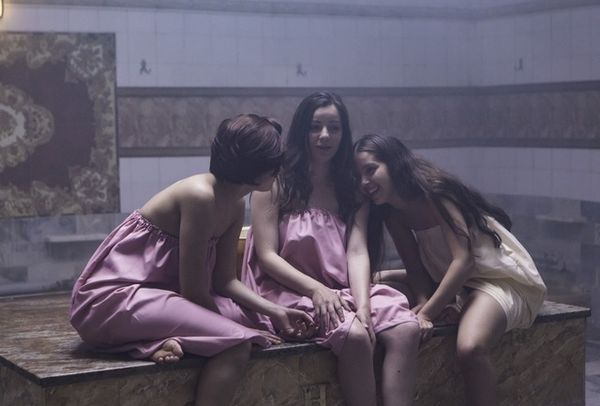 |
| Algerian Mounia Meddour makes her feature debut with Papicha, about a teenager trying to live a normal life in the troubles Photo: Unifrance |
So far there are 15 titles in the selection, with eight feature film debuts, which will compete for the Camera d’Or prize and seven films by women directors, including an animated title The Swallows of Kabul by Zabou Breitman and Eléa Gobbe-Mevellec, based on the novel by Yasmina Khadra.
 |
| Animation The Swallows of Kabul by Zabou Breitman and Eléa Gobbe-Mevellec Photo: Unifrance |
Bruno Dumont will present the sequel to his musical foray Jeannette: The Childhood Of Joan Of Arc (seen two years ago in the Directors’ Fortnight) with Jeanne, which promises to deliver an entirely different take but features the same actress, Lise Leplat Prudhomme, and is again based on the writings of Charles Péguy.
Two Spanish filmmakers vie for attention: Albert Serra who made Last Days of Louis X1V with Jean-Pierre Léaud, presents Liberté, set in pre-Revolution France, and Óliver Laxe, whose Mimosas was in the Critics’ Week three years ago, offers A Sun That Never Sets.
Mounia Meddour makes her feature debut with Papicha, representing Algeria with a narrative about an 18-year-old student passionate about fashion design, who refuses to let the tragic events of the Algerian Civil War keep her from experiencing a normal life and going out at night with her friend Wassila. Another North African woman filmmaker, Maryam Touzani, offers Adam, about a mother struggling to survive and to give her ten-year-old daughter the best possible future.
 |
| Bruno Dumont’s Jeanne features Lise Leplat Prudhomme in the title role Photo: Unifrance |
The Beanpole, by Kantemir Balagov from Russia, and set in post-Second World War Leningrad marks his second feature after Closeness (from the same section two years ago) while Ukraine’s Nariman Aliev presents his first film Homeward, the story of two Crimean Tatars returning to their native land with the body of their deceased son and brother (launched as a project in Midpoint at last year’s Karlovy Vary International Film Festival).
Demonstrating even more global diversity is Karim Aïnouz, from Brazil, with Invisible Life/Vida Invisivel (depicting the lives of two sisters in Fifties Rio de Janeiro) and, from Asia, Zhuo Ren Mi Mi by Taiwanese Midi Z and Summer of Changsha/Liu Yu Tian by Zu Feng.
The Festival’s ongoing dispute with streaming giant Netflix looks set to continue with no titles from the studio in this year’s selection - last year the festival wanted Alfonso Cuarón’s Roma but the title ended up premiering in Venice. Cannes had ruled that all films in the Competition had to be released in French cinemas. Amazon Studios will be present, however, with the special screenings of episodes of Danish director Nicolas Winding Refn’s TV series Too Old To Die Young.
Other titles for Un Certain Regard will be announced shortly while the selections for Critics’ Week and Directors’ Fortnight, two independent programmes in parallel to the official selection, will be announced later this month.
The Cannes Film Festival runs from 14 to 25 May.





















